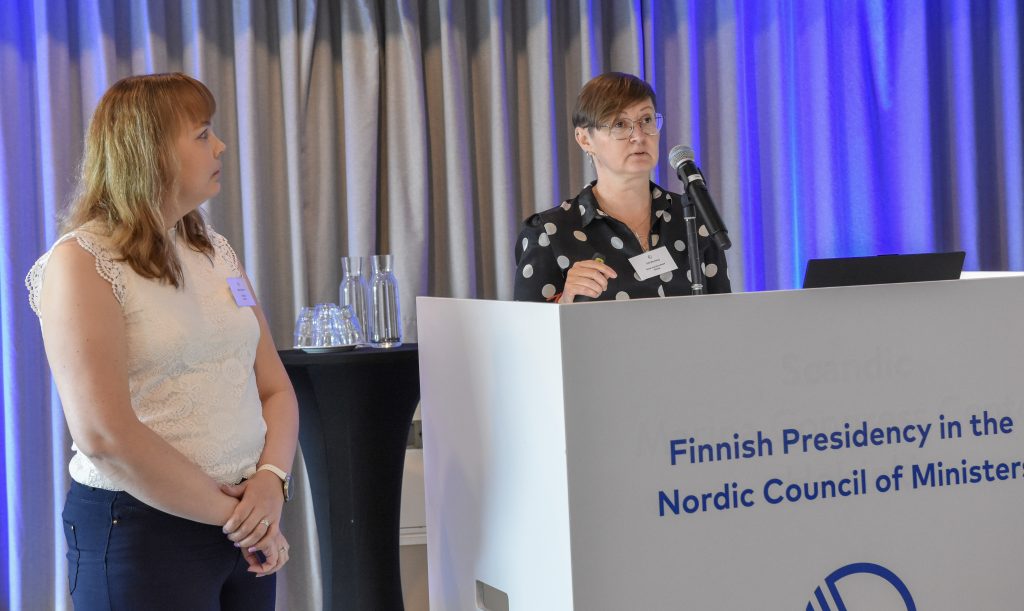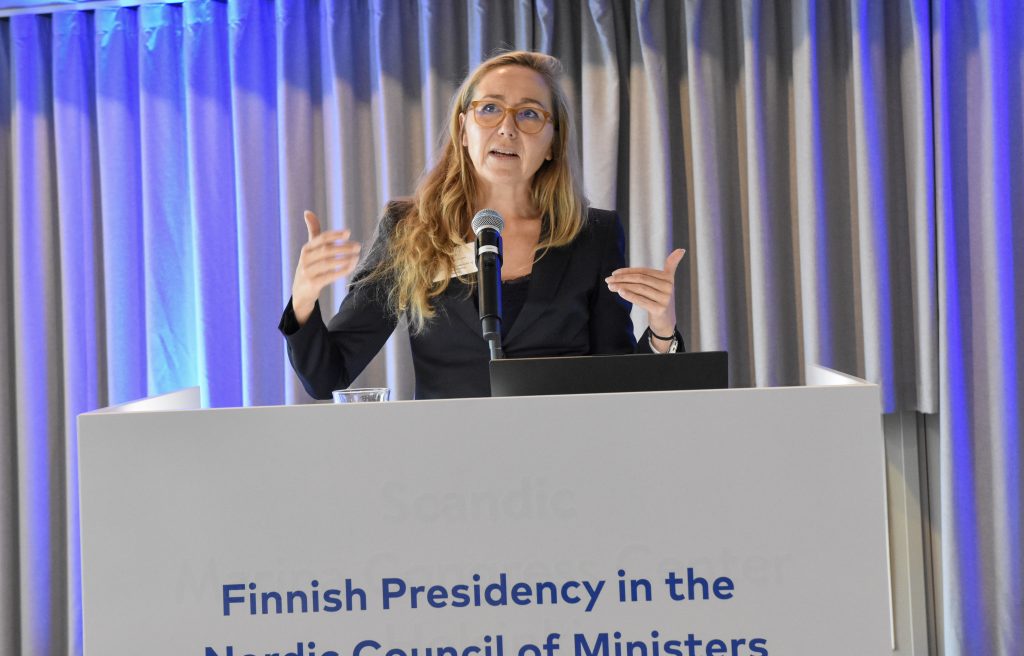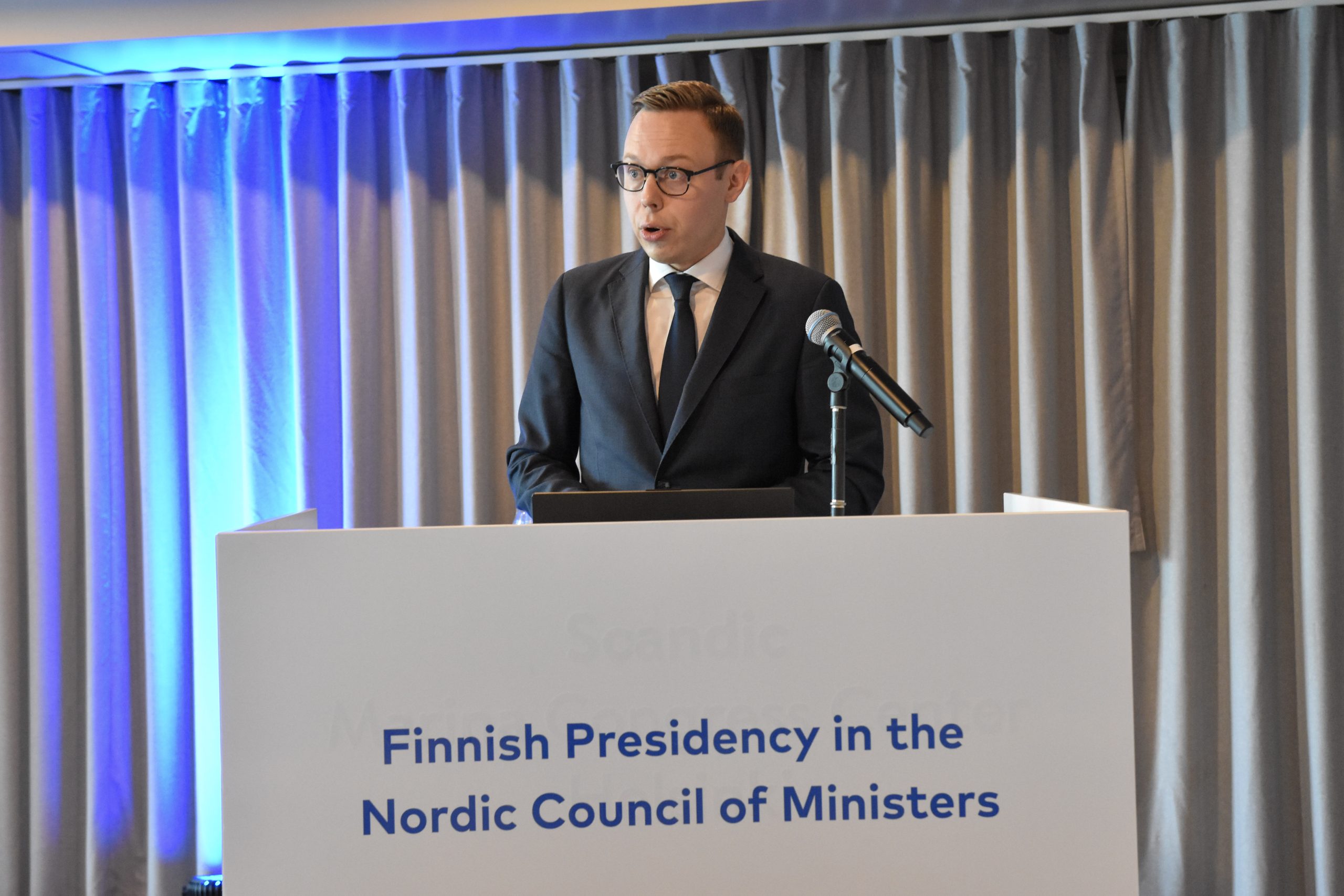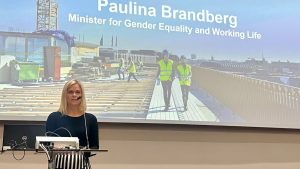How can the Nordics and Baltic countries stand stronger together to fight the exploitation of workers and promote a fair labour market?
That was the key issue when nearly a hundred participants gathered in Helsinki on 9 September for the conference Preventing Labour Exploitation and Promoting Fair Work.
NIVA Education organised the conference on behalf of the Finnish Presidency of the Nordic Council of Ministers. The list of participants reflected the complexity of the issue: occupational health and safety authorities, labour inspectorates, police, researchers, the social partners and NGOs.
Read this article in Norwegian on our Arbeidsliv i Norden.
A Nordic-Baltic community
Finland’s Minister of Employment Matias Marttinen opened the conference, pointing to the importance of cross-border cooperation. Finland has close links to Estonia and the other Baltic states, and the Nordic cooperation ministers have had a Nordic-Baltic network against labour crime since 2023.
The network brings together occupational health and safety authorities and inspectorates, and aims to provide a basis for a closer exchange of experiences.
There are some challenges, however. Different definitions, data sources and indicators make it difficult to compare figures and trends across the countries. That is why the Council of Ministers wants projects that can strengthen the knowledge base and help build a more common understanding of how labour crime is developing in the region.
Read more about the projet in the call for proposals: Strengthening Knowledge on Work-related crime in the Nordic-Baltic Region
A need for labour – and ethical recruitment
Marttinen underlined that Finland, like all the Nordic countries, needs more labour – especially qualified labour. It is therefore crucial to secure “ethical recruitment” of workers from abroad.
“Foreign workers must be given the correct information,” he said, and pointed to the Finnish app Work Help Finland, which gives guidance in several languages on rights, responsibilities and what workers can do if they are being exploited.
There has been progress, yet Marttinen underlined that much remains to be done and that the exchange of experiences between countries remains the key to progress.
The global picture
The ILO’s Gladys Cisneros provided a global perspective. She reminded the conference that migration is primarily about work. Out of 285 million migrants worldwide, 168 million are labour migrants.
Read more: ILO global estimates on international migrants in the labour force

Many come to Europe, which houses around one in five of the world’s labour migrants. The figures also reveal gender differences. In Europe, one-third of migrant women work in the care sector, while men are also making up a growing share of the health sector.
Migrant workers are three times more likely to face exploitation compared to other workers.
The Nordic countries have some of the lowest figures internationally, but the challenges remain significant.
An Estonian view: exploitation as a business model
Kairit Kuusamaa and Sirle Blumberg from Estonia described how the exploitation of workers in some cases has developed into a “business model”.

Blumberg heads the Service for Victims of Human Trafficking at the Estonian Social Insurance Fund. She asked the conference directly:
“Do we still care?”
She pointed out that images of victims of exploitation no longer trigger the same reaction as before, but reminded the audience that we must look for the invisible – the psychological scars – and not become complacent.
The authorities and society must take greater responsibility, she argued. If our reaction is not clear-cut, how can victims dare to come forward?
Changing terms
The terms we use when talking about labour crime have also changed over time, pointed out Fafo researcher Synnøve Jahnsen. When she started out as a student around 2000, human trafficking in Norway was almost exclusively associated with prostitution.
Over the past 25 years, a broader set of terms has come into use: labour market crime, social dumping, exploitation of labour and wage theft.

Wage theft became a criminal offence in Norway in 2022. This is a serious social problem that particularly affects foreign workers with limited language skills and little knowledge of their rights.
The penalty is fines or up to six years in prison, and Norway is the first country in Europe to introduce this kind of legislation.
“So far, three verdicts have been handed down. Although there is still a gap between legislation and reality, these cases show that the law can make a difference.
“For many of the participants in Helsinki, these types of examples represent an important starting point for learning from each other, and for strengthening the fight against labour crime across national borders.”
This article is one of several on labour crime which the Nordic Labour Journal will publish as our theme for September 2025.






